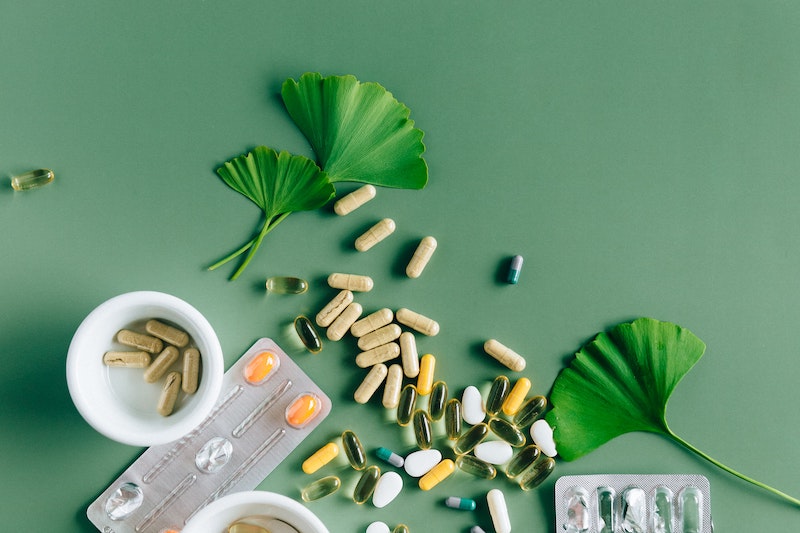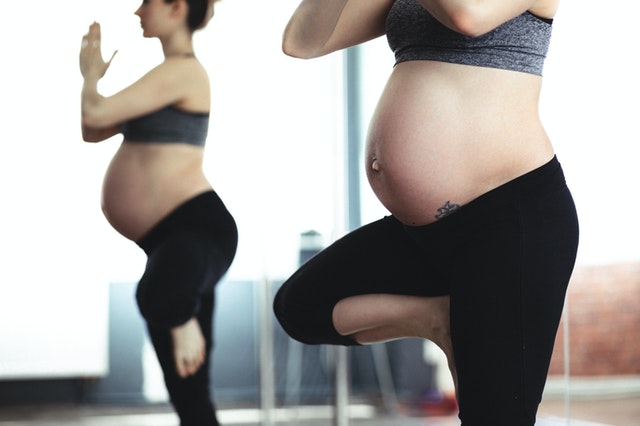Prenatal supplements are incredibly important if you’re pregnant. They offer numerous benefits and ensure that mother and child receive all the vitamins and minerals that are needed for health and development. We discuss why they matter and how to choose the best one for you and your baby.
What are prenatal supplements?
Prenatal supplements are supplements that contain vitamins and minerals needed by pregnant women for a healthy pregnancy.

No matter how healthy your diet is, there may still be certain important nutrients lacking. Prenatal supplements are important because they cover any nutritional gaps that might be present in your diet.
Many medical professionals recommend that prenatal supplements be taken as soon as you decide that you want to start trying for a baby and continue taking them throughout the pregnancy.
Prenatal supplements benefits
Both mother and baby will benefit from prenatal vitamins:
- It helps reduce nausea, or morning sickness during the first trimester.
- It helps reduce the risk of birth defects.
- It may help to reduce the risk of autism.
- It helps the mom to carry the baby full term, reducing the risk of preterm birth.
- It helps ensure that both mother and child are getting all the nutrients needed to stay as healthy as possible.

What do prenatal supplements do?
Here are some of the important nutrients that will help the baby to develop and the mother to stay healthy throughout the pregnancy.
Folic acid
Medical professionals recommend that you start to take folic acid even before you conceive. This is because folic acid helps to prevent neural tube defects, such as spina bifida. Expecting and pregnant women should take 400mg of folic acid every day until week 12 of the pregnancy.
If you were not on folic acid before conceiving, start as soon as you find out that you’re expecting.
Folate, which is the natural form of folic acid, can be found in green leafy vegetables and folic acid fortified cereals and spreads. However, it can be quite hard to get the recommended amount from your diet and as such, it’s very important to be on a folic acid supplement when you’re expecting.
Higher dose folic acid
A medical professional may advise that you take a higher dose of folic acid if there is a high chance of neural tube defects occurring. Factors that increase this risk include:
- Either one of the biological parents has a neural tube defect or a family history of neural tube defects.
- You had a previous pregnancy affected by neural tube defects.
- You are on anti-epilepsy medication or anti-retroviral medication
- You are diabetic.
Calcium
Calcium is needed for the development of a baby’s bones and teeth. Pregnant women need calcium in order to prevent bone density loss as the developing baby uses the available calcium for its bone growth.
Calcium sources include:
- Dairy products such as milk, yoghurt and cheese.
- Green leafy vegetables such as kale and rocket.
- Calcium-fortified soya drinks.
- Food made with calcium-fortified flour.
- Certain fish, such as pilchards and sardines.
Iodine
Iodine is needed by pregnant women to maintain healthy thyroid function. In fact, compared to other women, pregnant women need 50% more iodine to provide it for the growing baby in their womb. Lack of iodine can result in:
- Stunted growth
- Deafness
- Severe mental disabilities
- Stillbirth
- Miscarriage
Iodine can be found naturally in fish and other seafood, dairy products such as milk and cheese, and iodized salt.
Magnesium
Magnesium is a mineral that helps in maintaining normal blood pressure and in muscle and nerve function. It is also needed in bone development and helps reduce the risk of preterm birth and other pregnancy complications.
Almost every system in your body – and your developing baby’s body – needs magnesium. This mineral plays an important role in nerve and muscle function and helps to maintain normal blood pressure. It also helps your baby build strong teeth and bones.
Iron
Iron helps the body make red blood cells which work to transport oxygen to the baby. It is also needed for a healthy placenta and to prevent anaemia. People who suffer from anaemia often feel weak and tired. Other symptoms include:
- Irregular heartbeat
- Shortness of breath
- Lightheadedness and dizziness
- Headaches
- Cold feet and hands
- Chest pain
Natural sources of iron include lean meat, dried fruit, nuts and green leafy vegetables. Additionally, iron is now added to many breakfast cereals.
Zinc
Zinc is a micronutrient that is needed in immune function, cell division as well as wound healing. It’s also needed for placenta development in pregnant women.
Zinc deficiencies can lead to imparted fetal growth, reduced birth weight as well as preterm births. Although severe zinc deficiency is not common, an estimated 80% of pregnant women are not getting enough zinc in their diets.
Natural sources of zinc include meat, legumes, seeds, nuts, eggs, dairy and whole grain.
Omega-3 fatty acids
Omega-3 fatty acids play a large role in fetal brain development, gestational timing, as well as in preventing pre-eclampsia, low birth weight, preterm birth and perinatal depression.
Omega-3 fatty acids include docosahexaenoic acid (DHA) and eicosapentaenoic acid (EPA) which can be found in seafood and nuts.
Choline
Choline is important during pregnancy as it is critical for brain development, as well as tissue expansion and gene expression. It also protects against neural tube defects, like folic acid.
Natural sources of choline include eggs, meat, fish and certain whole grain cereals. While choline is available in many types of food, it’s still important to supplement it during pregnancy to ensure that the baby receives all the choline it needs for the healthy development of the brain and spinal cord.
Vitamin D
Vitamin D helps to keep bones and muscles healthy by regulating calcium and phosphate in our bodies. According to the World Health Organization, vitamin D supplementation among pregnant women can help in reducing:
- Risk of preeclampsia
- Low birthweight
- Preterm birth
- Gestational diabetes mellitus
Our bodies produce vitamin D when exposed to sunlight, but it’s also found in natural sources such as red meat, eggs and oily fish such as salmon, sardines and mackerel. Vitamin D is also sometimes added to breakfast cereals and fat spreads.
Vitamin D supplementation is important for pregnant women as it is quite hard to get a sufficient amount from diet alone.
Vitamin C
Vitamin C is needed by pregnant women to make collagen for skin, bones, tendons and cartilage. It is also essential for wound healing, tissue healing, protecting cells from damage and fighting infection. As such, it is needed to maintain a healthy immune system.
Additionally, vitamin C also helps in iron absorption. It can be found naturally in a wide variety of fruit and vegetables including oranges, strawberries, blackcurrants, broccoli, brussel sprouts and even potatoes.
Symptoms of vitamin C deficiency include dry skin, slow healing cuts, gum inflammation and fatigue.
Biotin
Also known as vitamin H, biotin is a B vitamin that is very much needed in the metabolic processes and in maintaining overall physical health.
It is available in numerous foods, including organ meats, eggs, cheese, legumes, leafy green vegetables, mushrooms, nuts and yeast. As such, biotin deficiency is relatively rare.
However, up to 50% of pregnant women in the US may have a mild biotin deficiency. It may be because biotin is broken down more quickly during pregnancy. Thus, pregnant women may need more biotin than other women.
When to start prenatal supplements?
It is best to start taking prenatal supplements as soon as you’re trying to conceive to prepare your body for growing your baby. For example, the risk of neural tube defects is greatly reduced in women who start taking folic acid supplements before they conceive.
However, there is no cause to worry if you were not taking prenatal supplements before getting pregnant. Just start popping one every day now.
How long should you take prenatal supplements?
While prenatal supplements are non-negotiable for most women. However, they are just as important after the baby arrives. In fact, you should continue on the vitamins especially if you’re breastfeeding or wanting to try for another baby soon.
Doing so will replenish your nutrient stores and ensure that you start the next pregnancy with all the nutrients that you and your baby will need.
Prenatal supplements side effects
Yes, sometimes prenatal supplements contribute to nausea and constipation. If you feel nauseous when swallowing the capsule, prenatal supplements in liquid or chewable form may help. If side effects persist, it’s best to speak to a medical professional about it.
To prevent constipation from prenatal supplements,
- Ensure that you drink a lot of water and stay hydrated.
- Opt for a high fibre diet.
- Exercise if your health care provider says it’s safe for you.
- Ask a medical professional about taking a stool softener.

Is it OK to take prenatal vitamins if not pregnant?
Prenatal supplements are formulated to meet the dietary needs of pregnant and breastfeeding women. As such, they are made to cover nutritional gaps a pregnant woman may have and are not really recommended for women who are not expecting.
In fact, taking prenatal supplements when you’re not pregnant may do more harm than good. For example, too much iron can cause constipation and diarrhoea while excess vitamin A can lead to liver failure.
If you’re not expecting, the best way to get adequate nutrition is via a healthy balanced diet.
How to choose prenatal supplements?
There are a vast number of prenatal supplements available on the market and each one can contain different amounts and types of nutrients. As such, it’s wise to look for prenatal supplements that have at least:
- 400 mcg folic acid
- 200 to 300 mg calcium
- 400 IU vitamin D
- 70 mg vitamin C
- 10 mg vitamin E
- 6 mcg vitamin B12
- 15 mg zinc
- 17 mg iron
- 150 mcg iodine
Additionally, you might also want to look out for prenatal supplements that contain essential bioactive ingredients and do not contain GMO or artificial colours. It’s also good to ensure that the prenatal vitamins are formulated by medical professionals, and backed by science.
Is it ok to take prenatal gummies?
Yes, it is ok to take prenatal gummies, especially if you are not able to swallow pills. In fact, swallowing a huge capsule can trigger morning sickness for some women.
However, prenatal gummies may contain added sugar and have less nutrients than prenatal vitamins that come in pill form. As such, they may not provide you with all the necessary nutrients.

Best prenatal supplements in Singapore
One of the best prenatal supplements in Singapore is from Ova. With 12 bioactive ingredients to support you and your baby, Ova’s prenatal supplements are formulated by medical professionals, contain no artificial colours and are GMO and gluten-free.
Additionally, because Ova is a direct telemedicine provider, you don’t have to wait in line to make your purchase. Both medical professional consultations and purchase can be made online, and the supplements will be delivered right to your address.
Conclusion
One of the best things you can do as you prepare for the arrival of your little one is to take prenatal supplements. Both you and your baby need an adequate amount of nutrients in order to stay healthy. Start taking prenatal supplements if you’re planning to conceive. And if you’re pregnant and not yet on any prenatal vitamins, it’s best that you start right away.